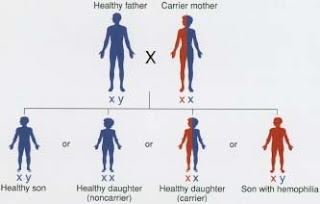
"Is it a boy or girl?" is usually the first question the couple will ask when their baby is born, but sometimes the answer is not so clear-cut. Sometimes a baby is born with ambiguous genitalia that are difficult to classify as male or female. Or the baby's chromosomes may indicate one sex, but its genitalia and reproductive organs indicate the opposite. In such cases, the baby is not exclusively male or female, but intersex.
A broad definition of an intersex person is someone whose sex chromosomes, internal reproductive organs, genitalia, and/or secondary sex characteristics are a combination of male and female. There is this huge societal issue that intersex individuals will not be socially accepted. There s only space for two genders in this world: female and male. In Practices of Looking, it is explains that we the people “make meanings of the world around us only through systems of representation, and they, in effect, help to construct our experience of the material world for us.” This is the prime example of class, gender, ideology, and work practice.
Just because a person may have both chromosomes does not mean he or she is weird. So when a child is born, the parents automatically want to change their child’s gender to be one or the other, not both. But why? It is not like their child is in any danger of being physically hurt. But in today’s society a parent wants their child to be socially accepted by their teachers, friends, acquaintances, business partners, and etc. We live in this socially constructed world where discrimination is still among us and a person must be accepted by others. Its not like an intersex person has the choice of being “different,” but it’s just not traditional. According to the Practices of Looking, “the identification of visible and measureable differences in skin tone and color and body shape and gender (and still are) means through which stereotypes are constructed and discriminatory practices are carried out and justified.”

In any case, our society has trouble understanding that these differences of gender may be part of our diversity as a human species; like sexual orientation or even other human characteristics that differ in biological gender. Of course we accept that hair and eye color varies and that those characteristics have no implied meaning yet we can’t seem to do the same for biological gender.
Sociologically, seeing how the cultural norms favor one category over another for specific types of traits, demonstrates not only who has power in this society but also how we attribute meaning of society. If we don’t allow ourselves to acknowledge that there may be more than two types of sex categories, then what does that mean to us as a culture and to people as individuals?
No comments:
Post a Comment